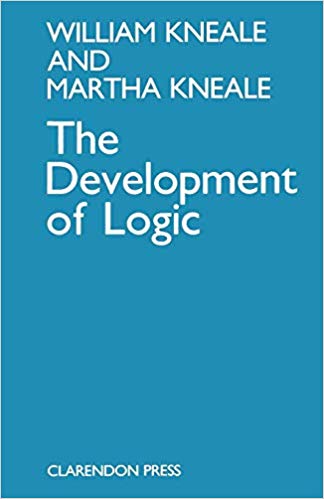Background
William Kneale was born on June 22, 1906, in Liverpool, United Kingdom.

Radcliffe Sq, Oxford OX1 4AJ, United Kingdom
Brasenose College where William Kneale studied.

(This book traces the development of formal logic from its...)
This book traces the development of formal logic from its origins in ancient Greece to the present day. The authors first discuss the work of logicians from Aristotle to Frege, showing how they were influenced by the philosophical or mathematical ideas of their time. They then examine developments in the present century.
https://www.amazon.com/Development-Logic-William-Kneale-dp-0198247737/dp/0198247737/?tag=2022091-20
1962
William Kneale was born on June 22, 1906, in Liverpool, United Kingdom.
William Kneale attended Liverpool Institute High School for Boys. Later he studied at Brasenose College where he gained first-class honors in Greats in 1927. After that, Kneale went to Paris and attended lectures by psychologist Janet, and to Freiburg, where he heard Husserl. In the 1960s William Kneale received honorary degrees from Aberdeen, Durham and St Andrews.
William Kneale started his career as an assistant lecturer at Aberdeen and Newcastle. In 1932, he became a lecturer at Oxford University. In the 1940s, he started to learn more about the history of the Science of Logic. He wrote his first book Probability and Inductions in 1949. As a philosopher of science Kneale also dealt with probability theory and inductive thinking. In addition, he wrote some works on philosophical logic. In 1960, Kneale took up a post of White's Professor of Moral Philosophy and held this post until 1966. In 1962, he wrote The Development of Logic.
(This book traces the development of formal logic from its...)
1962William Kneale's philosophical treatment was based on and integrated with tight formal principles. He believed that a proper appreciation of most philosophical problems is impossible without an understanding of their history.
Kneale also affirmed two main principles of a rationalistic flavour that were that laws of nature are modal propositions about natural necessity, not mere universal of fact or open conjunctions, and that what is meant by a probability-statement is that the ranges of the related characteristics, defined in terms of their ultimately specific constituents, coincide in a certain proportion.
William Kneale was elected a fellow of the British Academy in 1950 and served as Vice-President from 1971 to 1972.
In 1964 he became chairman of the British Society for the Philosophy of Science. In 1964 he was chairman of the Kneale Commission, which enforced a major reorganization of study at Oxford.
Physical Characteristics: William Kneale usually dressed rather formally. He could have passed for a banker or a senior civil servant.
William Kneale married Martha Hurst in 1938. The marriage produced two children.
